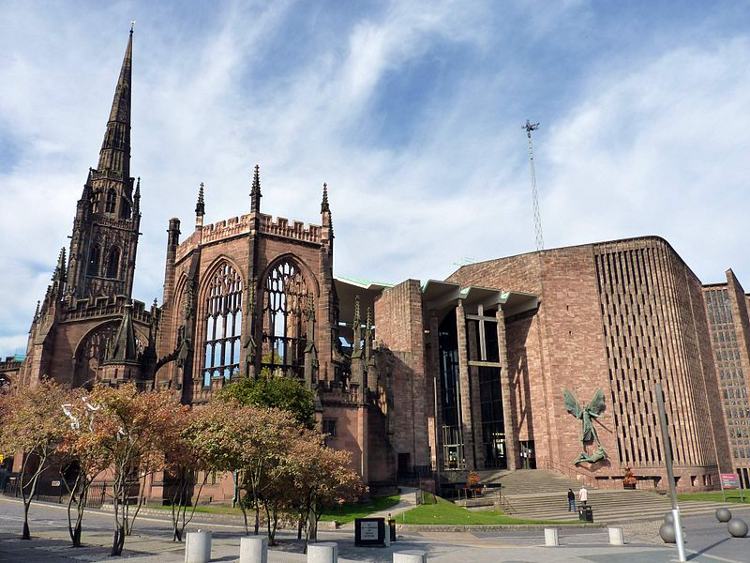
N. D. Wilson
Thomas Nelson, 2009
Amazon.com (affiliate)
Sometimes books, like the authors who write them, prove to be such a tangled mixture of wrong and right, beauty and deformity that I don’t know how to handle them. ND Wilson’s pithy, artistic revel through the problem of evil and good in our world provokes me to put electronic bits to electronic paper in an attempt to sort out how I feel about this book.
Without ruining any surprises for potential readers: Nate Wilson sets out to discuss (observe? illuminate? illustrate? investigate?) the meaning of CREATION in a world so clearly broken and destroyed by sin.
His thesis is that our world, spoken into existence by the Eternal Word and held together “by His powerful word” (Colossians 1), is Cosmic-scale Art by the Master Artist. The eternal, infinite God of the Universe stoops to paint Himself, His Image, in the layers and textures of Life in this cosmos, in all of its aspects. Consider the ant. Snicker at the snowflakes which heap themselves up on a winter night. Gasp in horror at rodents and rabbits eaten by hawks and tsunamis. And Nietzsche. The Lord God made them all. (Well, maybe not Nietzsche.) We are all His poem, His Story.
First off, I have to say — This is a beautifully-written book. I get tired of people who hound me to read a book that turns out poorly written and ugly in the mouth. Artistry and Truth go hand-in-hand; otherwise, the Truth gets sent out wearing ill-fitting clothes and wondering why everyone is staring at Her as if she has toilet-paper trailing from a mismatched high-heel. Nathan Wilson offers us soul-searching, thoughtful perspectives on sin and goodness and clothes them in a fresh, fashion-runway wardrobe. He bounces between narrative, anecdote, quotation, and lightly-theological discussions. Puns abound. Clearly, Wilson observed the Great Author’s style in His Book and followed suit — no one has ever accused God of handing us a systematic theology text (though I get the impression many of my friends wish He had; it would make their inconsequential, long-winded arguments much simpler).
That said, my opinion must divide here.
I *love* Nathan Wilson’s “voice” in his writing.
I agree with so much of what he says, especially the chapters about the life hereafter (end of the book), both positive and negative; his imagery of the dead being “planted” in hope of the coming Life; the beauty of the creation around us as living, colorful, tactile parables of spiritual realities. You gotta love the man’s chapter titles too: “The Problem of Evil and the Nonexistence of Shakespeare: A Paper by Hamlet, Prince of Denmark.” I especially loved his personification of unimaginative cosmic materialistic science: the god “Boom.” I don’t think a non-theist would ever be convinced by his words, but passages like these were a lot of fun to read (in the same way that the MPs in the British Parliament like to cheer and chuckle when one of their own works over some muck on the other side of the podium):
Is it strange that an impersonal accident should start talking about itself, that shards of matter rocketing through space/time would start making burbling noises and pretend that they’re communicating with other shards, and that their burbling truthfully explained the accident? Is it strange to you that an accident would invent baseball and walruses and Englishmen?
If a hypothetical neutral observer had watched the birth of an ever-expanding universe from the womb of an accidental fireball, was he (or she or it) surprised when the explosion invented llamas?
You see, for me, llamas are entirely consistent with the personality of an easily amused God. A prank on the Andes and everyone who ever needed to use the long-necked, pack-sweaters. Surly, pompous, comically unaware of their own looks, spitters. Perfect. Tell me a story about the great god Boom. Tell me how he accidentally made llamas from hydrogen (pp 127-28).
Great stuff, right?
But Wilson and I break ranks almost everywhere he deals with the “problem of evil” (to use the theologians’ phrase).
Applied to daily living, I love what Wilson says. I agree that ants die because I step on them, so what if the tables turn and I’m the ant? OK, you got me. This world is messed up, but God holds the reins and anyone who names Christ and reads the Word learns that God promises He’s got this. “Can disaster strike a city and God not be in it?” God says in Amos. Hard to argue with that. “You meant it for evil, but God meant it for good” was Joseph’s explanation for his years of slavery in Egypt triggered by his brothers’ sin.
We call this Providence. When my mom was diagnosed with breast cancer and I was 12, my mom asked for enough years of life to “raise” me. She got about 11 more sun-cycles out of the deal. None of us are bitter.
But the words that sing hope for the suffering soul turn ugly when Wilson uses them to explain God’s role in bringing evil to this planet in the first place. Essentially, “this is the best of all possible worlds.” Ah, Leibniz. Voltaire skewered your worldview 300 years ago.
Wilson, I’m disappointed…..
I won’t clutter this post with a review of the issues; I’ve mentioned it elsewhere on my blog and you can read for yourself in a good systematic theology (try Grudem’s). Suffice to boil down the millennia of argumentation to this:
a) God is good
b) God is all-powerful (or sovereign or however you want to state it)
c) Evil exists
All argumentation about the existence of “evil” fights on that ground, at least within the ranks of Theism. Most of the time, people “solve” the problem by weakening one of those 3 propositions. See, we’re left with the knotty problem that no human rationale can reconcile a) b) and c). We can chuck one (or hide it or soften it) and be ok, but to hold all 3 at once — well, that’s what my professor Bell used to call “trying to carry 3 watermelons at one time.” We humans just don’t have big enough brains to hold more than 2 at one time.
Wilson pulls a bait-and-switch in his argumentation. To illustrate God as Author of this cosmos, he tells gripping stories about cute rabbits getting eaten by powerful, beautiful hawks; of Shakespearean characters who don’t understand why they’re in such misery at the pen of their Author; of kittens who eat mice AND remain cute. And those stories are supposed to illustrate how our lives, at times senseless in their ironic, bitter brokenness, reflect a God who creates both kittens and and rabbits and hawks and violent ocean breakers. See? God’s got it all in His hands. It’s in the Plot. Calm down.
So … It’s not evil as long as it serves a plot-point….?
I wrote about this a couple years ago: some of my Reformed friends don’t realize they soften the evilness of evil in order to maintain God’s power and goodness. Is Wilson really trying to suggest that child abuse and a hawk’s supper are on the same moral ground?
I appreciate that Nathan Wilson will go to the stake promoting God’s glory and power and goodness — that’s awesome. But he does it by inventing a 4th proposition (God exists) and defending that (ok, awesome), while diminishing the reality of the curse under which we live in this fallen world.
With apologies, my friend —
We ARE commanded to envision a world apart from feasting carnivorous predators, without the thorns that tear apart our fingers as we struggle to garden, without the unwelcome visitor Death (who was never meant to be a part of this world — not for humans, for sure).
The Creation waits and groans for the day of its release from its bondage to our sin (Rom 8). Wilson’s right: we *will* see hawks and rabbits play together (Isaiah), but it comes at the horrific, measureless price of God’s own blood. Not mine. My good works on this earth DO count “for real,” but the Power of Redemption flows from God’s Grace, not my blood.
Lewis in the most famous Narnia Chronicle (Lion, Witch, Wardrobe) writes of the “deep magic” that even Aslan cannot violate: To redeem Edmund’s soul of his treachery, the Stone Table must have blood.
There is no “answer” in softening evil so that God can still look good and powerful.
Child molesters devour the innocent when no one but God knows about it. I can’t explain how that is Just apart from an eternal view of this world and everything that happens in it, but God promises that Justice will thrive on the earth once the Blood has done its work.
People are starving to death on parts of this planet while American farmers are paid not to grow some crops. God says He’ll break the arms of the oppressors…. in His time.
A hawk will swoop down and snatch a perky fuzzy kitten out of the sight of a screaming terrified toddler this holiday season …. because our sin is *that bad*.
And so I am left with the reader’s dilemma, and I invite you to join me. Wrestle with ND Wilson’s words. Get out your Bible and search. Glean the many gems from his pages…. but IMHO Wilson falls off the theological knife-edge in his quest to explain what God Himself makes no apologies for (other than to affirm that He is not the Author of the evil that chews us up from the inside out, apart from blood-bought Grace).
Read it.
PS. I’d love to teach a Sunday School class using this book along with C S Lewis’s The Problem of Pain and Mary Doria Russell’s outstanding fiction pair, The Sparrow and Children of God.







Got a comment?